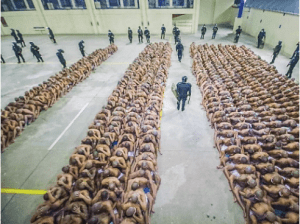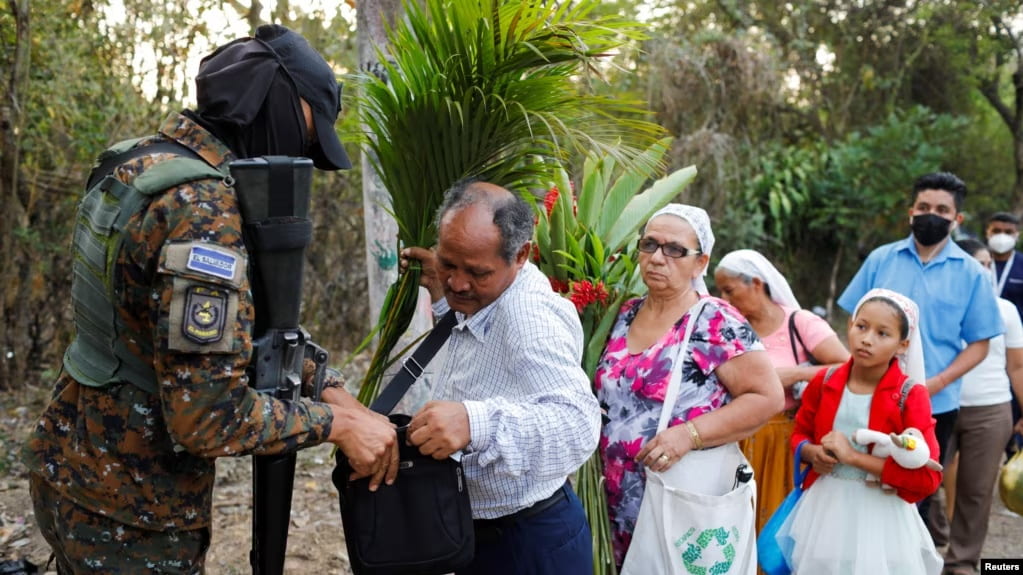When it comes to political corruption, the first countries that come to your mind are probably prominent ones that you have heard about in the news such as North Korea, Venezuela, Iraq, and countless many others. This article will concentrate on a smaller country that is having a more profound impact on the human rights of its citizens: El Salvador. It will be done by analyzing the leadership of its president, Nayib Bukele, and how he transformed the political and social landscape of Central America by going head-to-head with gangs and crime. His actions, rather than lowering crime in his country, have only exacerbated the crisis. While many Western citizens believe that taking the fight directly to the front is justified and right, it actually does not remedy the cause of the violence: a lack of socioeconomic stability and development.
The Problem
El Salvador is the tiniest country in Central America, but it was nicknamed the “murder capital” of the Western hemisphere because of the severely high homicide statistics in the world, excluding war zones. Gangs run rampant and have a staggering amount of control over the population as they facilitate the transfer of drugs and materials from the black market. For years, the previous government administrations ineffectively attempted to damper these issues, but they were unable to, which led to the rise of Nayib Bukele.
Who is Nayib Bukele?
With his rise to power as President of El Salvador in 2019, Nayib Bukele became the face of a new era of political aspirations for the people of his country. However, despite the pressures that came with him being the youngest governmental leader in Latin America at age forty-one, he faced the more daunting task of creating a government that would do away with the corrupt administrations prior to his own. By creating a political party under the name, “Nuevas Ideas”, with its English translation being “New Ideas,” while previously serving as the mayor of San Salvador, he advocated for change against the political establishment. He initially relied on the Frente Farabundo Martí para la Liberación Nacional (F.M.L.N.), a major political party that rose to power after the war between the guerrilla and government forces. The organization returned the favor years later by helping him win the office of mayor of San Salvador. However, it was his ability to form an independent party for his presidential campaign that caught the attention of the public. By becoming a political outsider, Bukele corruptly used this publicity and power of being the unheard-of candidate, and later incumbent president, to crack down on the gangs and rise in crime that have dominated the streets and consequently, which had a negative influence on the standard of living for all Salvadorans because the manner in which he did so was morally and legally wrong.
So far
On June 1, while speaking to celebrate the beginning of his fourth year as president, he renewed his promise to construct a prison that would contain criminals and gangs. This prison, later named the Center for Confining Terrorism, was built with the idea of housing over forty thousand inmates together. Bukele, in order to present a strong front against gangs, temporarily removed constitutional rights within the country, enabling those even under suspicion for being a criminal or being a part of a gang to be arrested without any form of trial or due process. Policies that control and get rid of crime are necessary and should be implemented to the fullest extent that they can, but this course of action is not representative of a democracy but rather a dictatorship. By referencing himself as “the coolest dictator in the world,” he is recklessly enforcing a vision of control that directly disobeys the constitution of his country. Furthermore, Bukele has allowed tens of thousands of armed military personnel to roam the streets of various cities, which he then justified because it worked in one city. These measures, along with multiple drone flybys over cities and sudden detainments of any citizen, strip Salvadorans of their basic human right to live without fear of being wrongfully imprisoned. A government that rules with fear is one that does not properly rule at all because the purpose of government is to provide hope and help to people in ways that others cannot.

Image 1 – Source: Yahoo Images; The unnecessary torture of prisoners being for the public to witness and hopefully enact action. |
Ending it once and for all?

Image 2 – Source: AmnestyUSA; An image of citizens taking to the streets to demonstrate how pressing of a matter it is. |
Going forward, Human Rights Watch (HRW) has provided solutions for how to better solve issues with crime and gangs in El Salvador. They directly addressed various contributors to human rights violations, such as the Bukele administration, legislative body members, the attorney general, and other government officials. The most compelling course of action given to the Bukele administration was to confront why someone would want to join a gang, which would consist of resolving the economic and educational disparities that deprive citizens of having the chance to maintain a prosperous lifestyle. Putting people behind bars is seldom the answer to reducing crime because it does not address the issue at its core. For the legislative body, the HRW recommends that they immediately terminate the state of emergency that has allowed President Bukele to enforce soldiers in the streets and imprison any person with suspicion of being in a gang. Applying this course of action will be a challenge for the legislators because of their unicameral body that has typically leaned towards supporting Bukele.
Final Say

Image 3 – Source: AmnestyUSA; An image of family that represents plenty of other families that could be experiencing similar hours. |
The human rights violations that have exponentially grown in El Salvador are because of the discourse and leadership of President Nayib Bukele and his advocators. They believe that they are effectively getting rid of gangs and other forms of crime in their country, but the manner in which they are doing so has caused them to have a destructive aftermath on citizens who want no part in this war. Furthermore, the deterioration of conditions in prisons that are already housing an increasing number of inmates demands the attention of people from around the world as these atrocities deserve to be seen and heard so that its enablers are held accountable.

